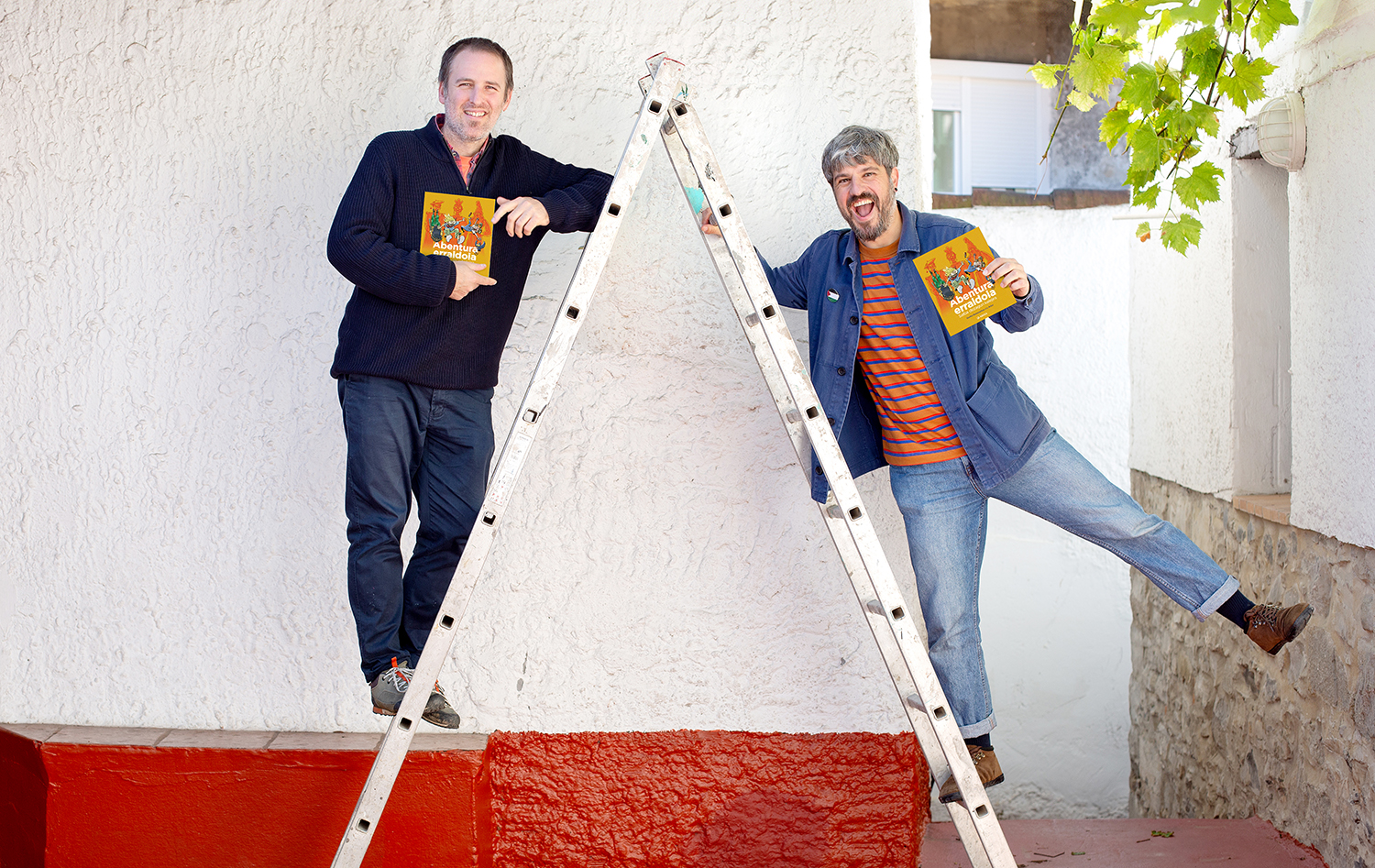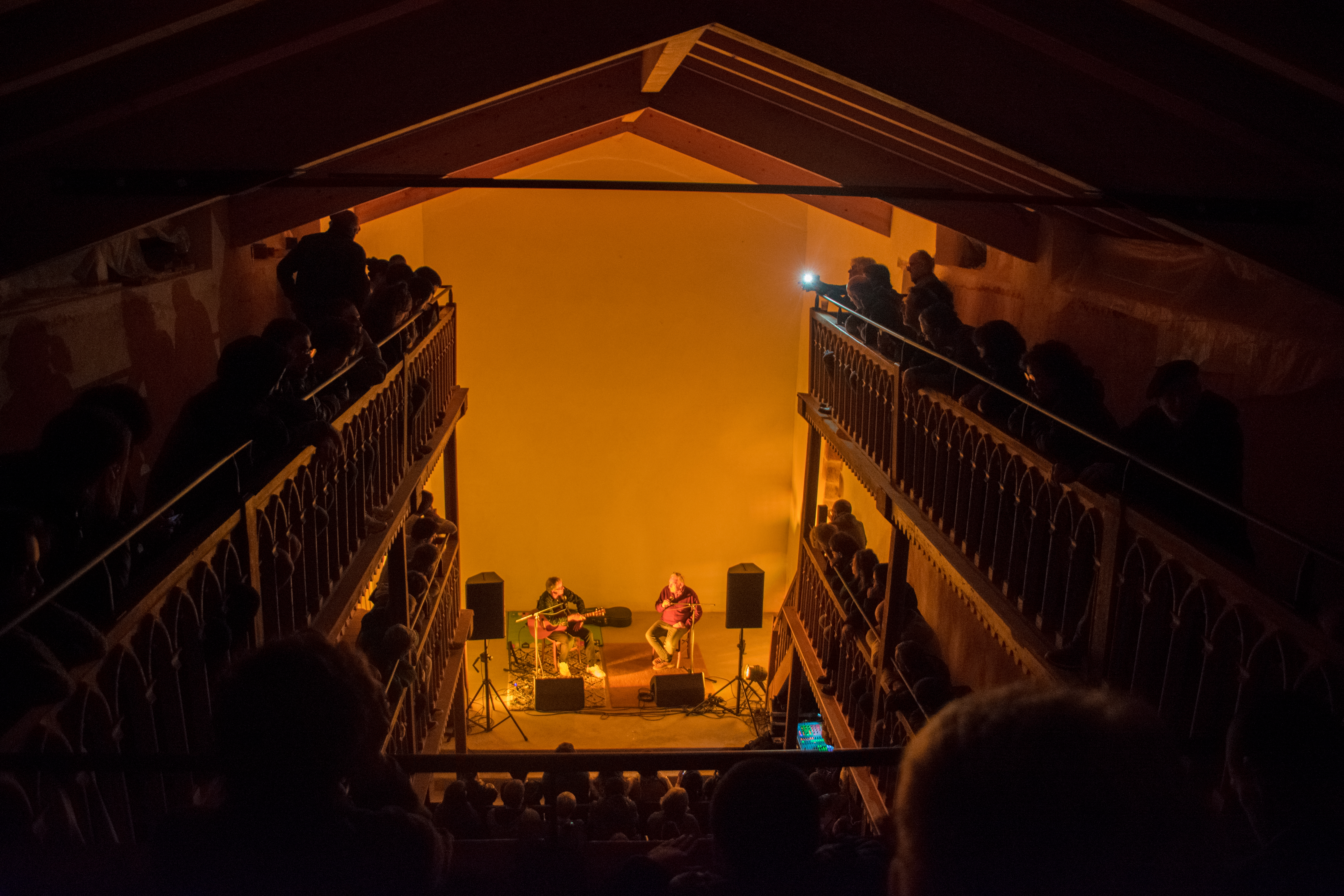"The social value of literature will return from the socialization of poetry"
- The writer and host of the programme so far Mikel Ayllon has dismissed the Irakurieran literature programme of Bizkaia Irratia, presented by Julian Iantzi. In addition to saying that it would not continue from September onwards, he reflected on the networks about the situation of literature in Basque: "The Basque literature has become increasingly homogeneous."
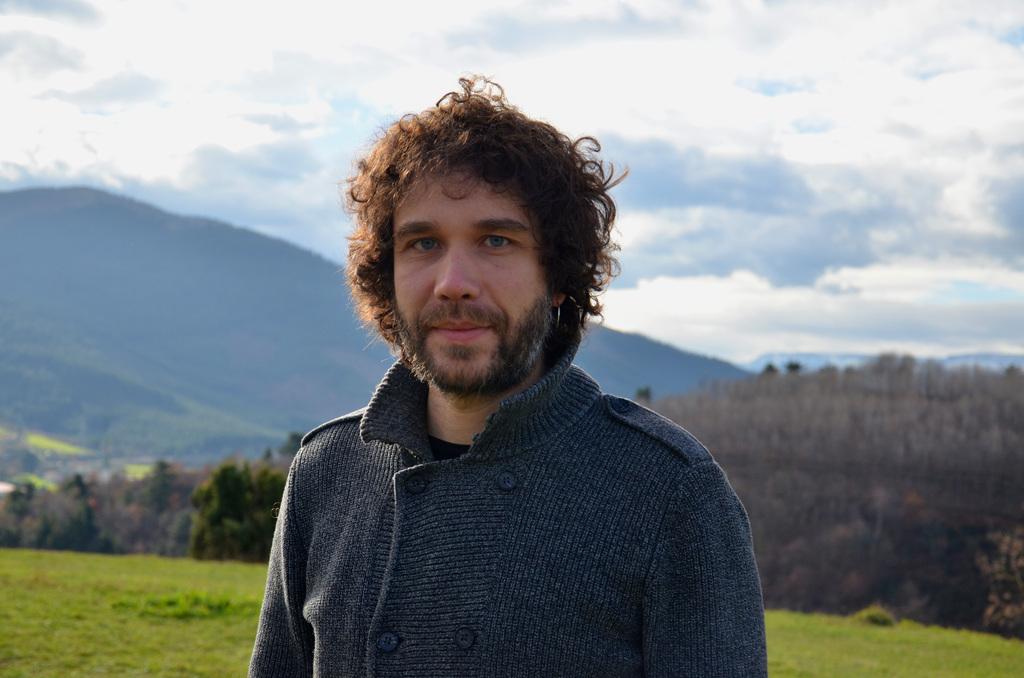
After two years, you've left the leadership of the Irakurieran program.
Not for anything else in the world. I have other projects and I can't get to things. Reading, in addition, alternating with the bagoaz. It is a project led by the Writers' Association, which has been running for many years, and for which many members have passed. I've finished my cycle, another one will come.
Over 60 sessions. A lot of writers have passed, a lot of books. You'll have fun, you'll have received great surprises.
If it wasn't for the program, I've read some books that I might not have read, that I really liked and that I've found something special to you. Books that don't get much attention, others by novel writers... Beautiful surprises out there, yeah.
On social networks, when announcing the farewell, he commented that he has the suspicion that the Basque literature is increasingly homogeneous, both in its forms and in its contents. What are you talking about?
In our literature, we seek this approval through the market. In other words, the Basque and the Basque culture, and therefore the Basque literature, have some shortcomings and obstacles, as we all know, we know our reality. Therefore, and I think it is normal, we are looking for approvals, because we have to say that we are here and that our literature is as valuable as any other literature.
Where do you see the change or do you think we're going where?
Looking back, and without saying “the times of the past are better”, I think it is worth highlighting the uniqueness in the forms and style that occurred at the time when Basque literature was modernized, with Amaia Lasa, Ramón Saizarbitoria, Arantxa Urretabizkaia, Joseba Sarrionandia or Bernardo Atxaga. At that time, meetings were very frequent: Pott Banda and others, in Donostia there was a great movement around the literature, the magazine Panpina ustela, then Susa would come... There was an environment closely linked to politics.
Since then, the path that has been followed has been commercialization, not so much the social value that literature has. A path has been made to strengthen the economic structure, to generate “the economy of the book” in the editorial system.
I believe that in time peripetees have been noticed. It seems to me that literature has lost social value, social presence, and that it has lost questions and concerns in general: what literature should be, what to write for... It is clear that, in the end, when it is reduced to the market, certain royalties are cancelled and that in small literatures such as ours it is difficult to comply with. Very few books are sold, and those sold are of the same type. Little room for surprise.
Little is sold and at the same time there is incredible production. The Basque reader has a hard time reading everything...
This is related to the socio-linguistic and political reality. It is clear that there are fewer and fewer readers, and it is true that we are not right to turn it around. It's easy to say, but I think change can come from recovering the social value of literature; if poetry serves us for something, then we need poetry. And poetry serves, of course. It comes back from the socialization of poetry.
"They have to recognize you in the structures of Spain. You have to appear in the literary supplement of 'El País'. So as a culture, we're not going anywhere."
You said that the logic of the market is very damaging.
Yes, and we are also looking for some kind of protection and prestige abroad. We see more and more that Basque writers are translating into Spanish. That's no coincidence: the market needs stars, and how do you get a Basque being to be a star? You have to go through Spanish and recognize yourself in the Spanish structures. You must appear in the literary supplement of El País. So as a culture, we're not going anywhere. And that's not the fault of the publishers, let alone the writers; it's enough to live from there, the ones who live.
We are a people without cultural policy. The only thing the institutions do is subsidise publications and give some money to creation. But that is not a cultural policy. We have to think about what we need literature, what places it has to occupy, and how we're going to do it to move it forward. We're not inventing, and it's noticeable.
Despite the fact that social value has fallen, you stressed that the new generations are realising this.
There is a certain impetus on the part of young people. They have created a couple of bands, Pomada and Behe, we have also started to see the magazine fanzines, and they have held a great literary journey in Vitoria-Gasteiz, where many people have gathered. They are other ways of disseminating literature, not only in book format, but also in the market and not in the context of this logic “editad-venid”.
"Young people come up with a certain push. They've created a couple of bands, Ointment and Behe, we've also started to see magazine fanzines."
Said by you: “For poetry to be a hammer and not a pot of Swedish colors.”
I live with interest what comes and what is already here. I've got to do with some young people who are in it. The Urruzuno competition, for example, is organised by the Basque Government and the prize is to hold meetings in Arantza for a week; I have been with them. The Lower Belt was sown in these rooms.
Those of the Lower Band think, or thought, that the only way to make literature is to publish books, and the book is nothing but a support. There are more ways of doing literature: for example, that of fanzines and magazines, and, of course, performances in public. Literature is a very interesting medium of socialization. It gives it a different place, coming out of the market, a different way of living literature, of thinking, of sharing, of getting another bond with the public. Unfortunately, the actions organized around the publication of a book have more than the dissemination of literature from the promotion, although there is also a way to open it a little.
Beware of that view of the South. Firstly, to demystify the blind admiration of the green land, the white houses and the red tiles, unconditional love, fetishism associated with speech and the supposed lifestyle. It leaves, as Ruper Ordorika has often heard, a tourist idea... [+]
Let's talk clearly, bluntly, without having to move later to say what I had to say: this game, which consists of putting together the letters in Basque, happened to Axular. Almost as soon as the game is invented, in such a way that in most of Gero's pages the author gives the... [+]









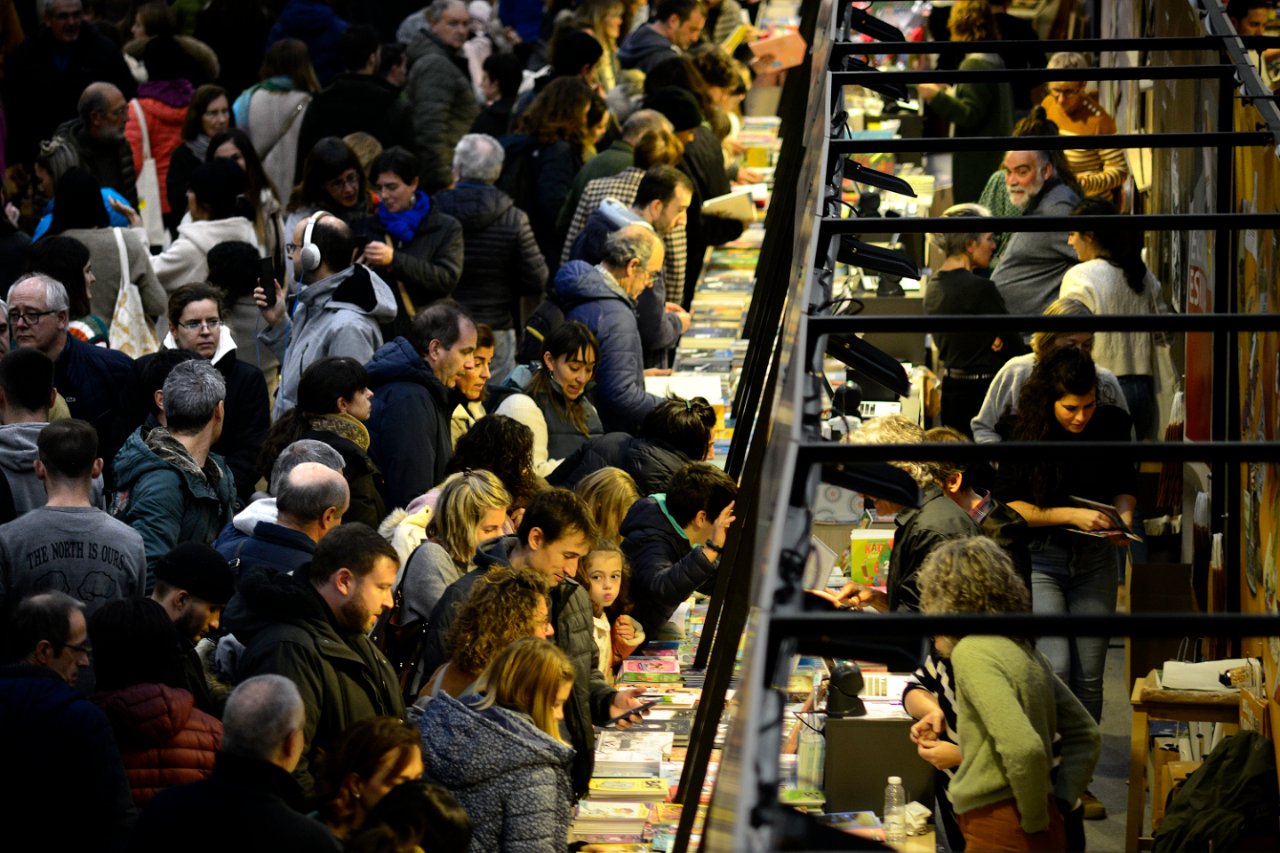



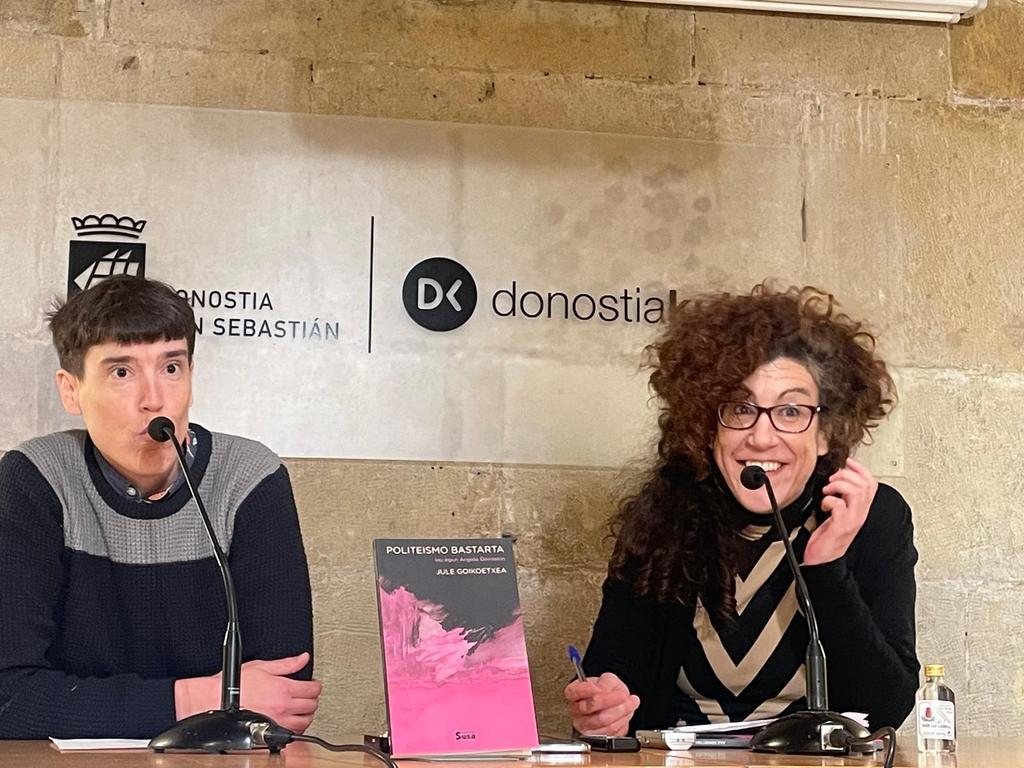

.jpeg)


